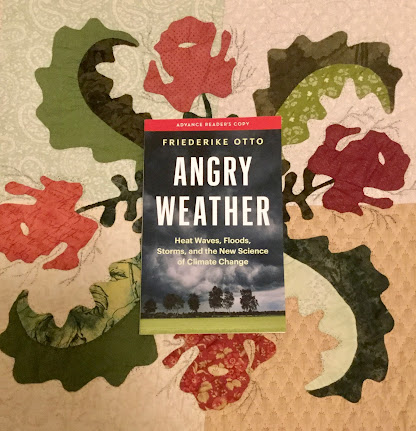The library book club read in October was A. J. Finn's suspense thriller
The Woman in the Window.I have read several suspense novels in the past and am pretty much over them. I dreaded reading 488 pages! Luckily, the chapters are short, there is lots of blank space, and I read it in a few days.
Of course, there is an unreliable narrator. Not one but two 'unexpected' twists. A murder, threat of death, mental instability, and all the stock noir memes. Finn saturates the novel with references to the classic, black and white, noir movies, the narrator's obsession.
I thought it overwritten, too many cute descriptive words. And I early guessed the real villian.
Over all, the book club readers said it was a quick easy read that kept their interest, full of the expected thriller twists. One thought it contrived. Entertainment, if nothing more.
Maybe. One reader appreciated the insight into agoraphobia.
And yet the book spurred a great discussion. Was too much space given to Anna's drinking or movie watching? Did we feel sympathy or disgust by her behavior? What spurred her self-destructive behavior? How soon did we predict the real villian, if at all? We talked about bad parents, red herrings, and how familiar Anna's homebound life felt during COVID-19.
Readers did find the book very cinematic with detailed descriptions that brought the book to life, and learning a movie was made of the book, we were all interested in viewing it.
*****
The Queen of the Owls by Barbara Linn Probst came to my attention on Facebook's Breathless Bubbles & Books page.
The main character, Elizabeth, struggles with her dissertation on Georgia O'Keefe, trying to connect her time in Hawaii as a transition point in her art.
Elizabeth's marriage lacks physical passion and emotional intimacy. She finds herself attracted to a photographer and together they discuss O'Keefe and her modeling in the nude for Stieglitz. She accepts his challenge to recreate the photographs with him as a way of coming to better understand O'Keefe and her motivation for modeling, if she was a co-creator in the art.
Plot-wise, the novel felt inevitable and unsurprising. The real interest is in Elizabeth's internal struggle for self-realization. She and her sister were early pigeonholed into narrow roles. Their husbands keep them confined to those roles, Elizabeth the 'owly' intellectual, her sister the fun and pretty one. Elizabeth is a good teacher and she believes in her work and can defend it. She has to learn to believe in her beauty, free herself to find real love, and take charge of her destiny.
Much of the novel's space is centered on O'Keefe's art and life, which I did enjoy.
The sexual issues are addressed with great honesty, from the marriage bed's coolness to Elizabeth's intense, unrequited attraction.
The novel is well written and an enjoyable read. Fans of women's fiction, stories of young women's self-actualization, or the art world will enjoy this one.
I purchased an ebook.






































